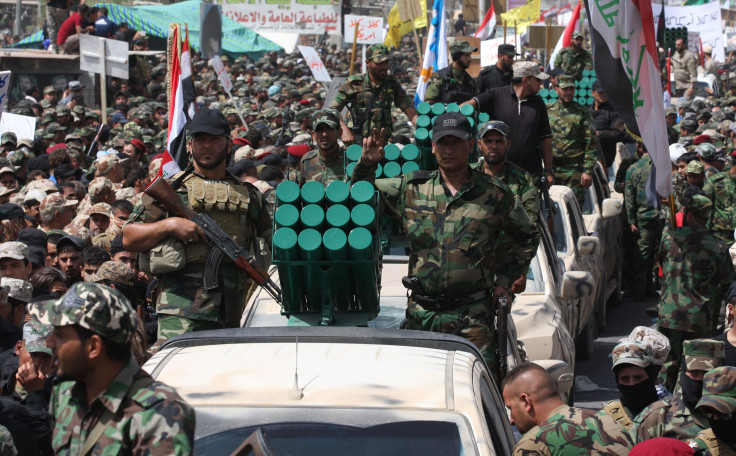ISIS Takes Control Of Syrian Border Town, Shiite Militia Holds Rallying Parade

A Shiite militia paraded through government-held cities Saturday in a show of force as the Sunni extremist group Islamic State In Iraq and Syria (ISIS) took control of al-Qaim, a key Syrian border town, after heavy fighting with Iraqi security forces.
Al-Qaim is one of three official Iraqi-Syrian border points. ISIS controls a region and at least three towns on the Syrian side of the border crossing and have been fighting to take Abukamal, the town directly across the Syrian border from al-Nusra, al Qaeda’s Syrian affiliate. Control of the al-Qaim and Abukamal would allow ISIS to move assets and personnel between its territories in Syria and Iraq freely.
Al-Qaim is about 300 miles west of Baghdad where the Mahdi Army, a prominent Shiite militia staged a parade meant to rally the population behind a campaign against ISIS. It was organized by Shiite cleric Muqtada al-Sadr, who founded the Mahdi Army in 2003 to fight occupying Western forces.
In 2008, Iraqi and American forces fiercely clashed with the Mahdi Army in an attempt to clear the group out of its strongholds in Basra and Sadr City in Baghdad. It disbanded shortly thereafter. Now the reformed militia group is gearing up to fight ISIS, but there is still strong anti-American sentiments among the militia ranks, which may prove to be divisive when 300 U.S. military advisers arrive in Iraq this week to help the Iraqi army fight ISIS.
"ISIS is a terrorist organization created by the United States. They are the enemy of humanity," said a parade participant who identified himself as a former army colonel. "We are here to free the land for all Sunni and Shiite and everyone."
They carried rocket-propelled grenade launchers, automatic weapons and dressed in camouflage and black uniforms.
Grand Ayatollah Ali al-Sistani, the top Shiite cleric in Iraq and the catalyst for the recent surge in Shiite volunteer fighters, became the latest to urge Iraqi Prime Minister Nouri al-Maliki to reach across sectarian lines and unite Sunnis, Kurds and Shiites living in Iraq.
Seven were killed and 32 injured in bomb attacks across Baghdad and fighting took place in Falluja, about 40 miles west of Baghdad.
© Copyright IBTimes 2024. All rights reserved.






















